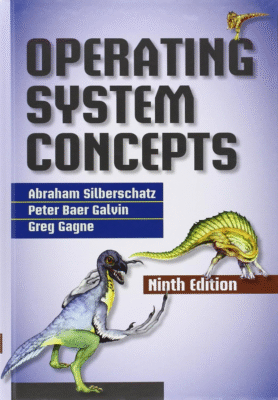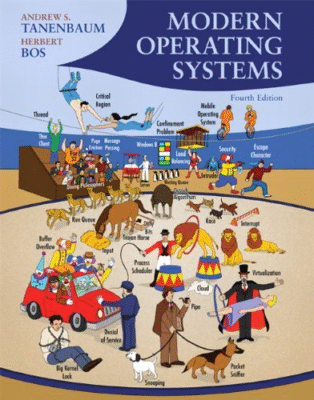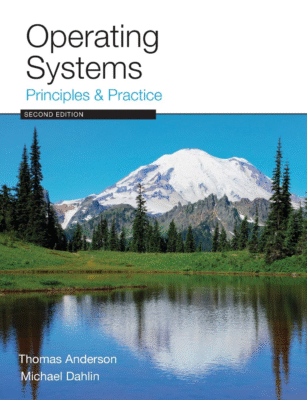5 Best Books for Operating Systems
Learning about operating systems (OS) is essential for anyone pursuing computer science, software engineering, or IT. An operating system is the backbone of any computing device, managing hardware, software, and resources. Whether you’re a student preparing for exams, a professional brushing up on concepts, or someone simply curious about how systems work, having the right book can make a huge difference.
Here are 5 of the best books for studying operating systems that balance theory, practice, and real-world applications.
1. Operating System Concepts by Abraham Silberschatz, Peter B. Galvin, and Greg Gagne

4.5 out of 5 Ratings
Often nicknamed the “Dinosaur Book”, this classic is a must-read for anyone studying OS fundamentals. It covers process management, memory, file systems, security, and distributed systems with clear explanations and diagrams. Updated editions also include topics like virtualization and cloud systems.
Best For: Students and beginners who want a comprehensive and structured introduction.
2. Modern Operating Systems by Andrew S. Tanenbaum and Herbert Bos

4.5 out of 5 Ratings
Tanenbaum, one of the pioneers in the field, provides a deep yet accessible exploration of operating systems. The book covers traditional OS concepts but also dives into current trends like multimedia systems, distributed computing, and security. Real-world case studies of Linux, Windows, and Android make it especially relevant.
Best For: Readers who want both theoretical depth and modern context.
3. Operating Systems: Three Easy Pieces (OSTEP) by Remzi H. Arpaci-Dusseau and Andrea C. Arpaci-Dusseau

4.6 out of 5 Ratings
This free-to-read book (available online) has become extremely popular among students and professionals. The authors break down complex OS concepts into “three easy pieces”: virtualization, concurrency, and persistence. Each chapter is approachable, with exercises that reinforce learning.
Best For: Self-learners, students on a budget, and anyone who prefers a practical, exercise-driven approach.
4. Understanding the Linux Kernel by Daniel P. Bovet and Marco Cesati

4.5 out of 5 Ratings
If you want to go beyond theory and explore how a real-world operating system works, this book is perfect. It focuses specifically on the Linux kernel, explaining its design, data structures, and implementation details. While technical, it’s invaluable for programmers who want to work at the system level.
Best For: Developers, system programmers, and Linux enthusiasts.
5. Operating Systems: Principles and Practice by Thomas Anderson and Michael Dahlin

4.5 out of 5 Ratings
This book strikes a balance between theory and practice, explaining OS principles with clarity and offering real examples. It also includes projects and exercises that guide readers in applying what they learn.
Best For: Learners who want a hands-on companion to theory.
Final Thoughts
The best book for you depends on your goals:
- Beginners may start with Operating System Concepts or OSTEP.
- Those interested in theory and real-world examples should read Modern Operating Systems.
- Programmers wanting in-depth knowledge of Linux should study Understanding the Linux Kernel.
- For a balance of both theory and hands-on practice, Operating Systems: Principles and Practice is excellent.
No matter your path, these books provide a solid foundation for mastering operating systems.

